In this edition of Sliced, the 3D Printing Industry news digest, we cover the latest business developments and partnerships in the 3D printing sector.
Today’s edition includes several 3D printing partnerships and business deals, rebrandings from Sigma Labs and Covestro, new post-processing systems from AM Solutions and DyeMansion, and a luxury 3D printed sports watch.
Read on for the most recent updates from AddUp, Uniformity Labs, Kimya, polySpectra, Mechnano, Boston Micro Fabrication, Sintratec, Solidpro, Wikifactory, Sigma Additive Solutions, Recreus, Massivit 3D, Covestro, Mimaki, and more.
New 3D printing partnerships, acquisitions, and investments
Starting off with the latest business deals in additive manufacturing, 3D printer OEM AddUp has started working with materials firm Uniformity Labs to improve the performance of Uniformity’s Ti64 Grade 23 alloy on AddUp’s FormUp 350 3D printer. The work is set to lead to a partnership that will jointly market the titanium alloy as an advanced materials option on the powder bed fusion system.
Adam Hopkins, CEO of Uniformity Labs, said, “The advanced features of the FormUp 350 and the optimized material properties of our ultralow porosity Ti64 Grade 23 powder produce the highest quality printed alloy ideal for medical and other high-performance applications such as aerospace and energy. Ti64 is the starting point as we will look to verify other materials on the FormUp350 platform with AddUp.”
Leading 3D printer OEM Stratasys has partnered with materials firm Kimya to expand the Stratasys Validated materials range for its FDM 3D printers. As a result of the deal, Kimya will soon offer Stratasys customers two new materials: Kimya PC-FR, an EN45545–2 certified polycarbon filament, and Kimya PEKK-SC, a polyetherketone filament. Expected to see use in the rail and oil sectors, the new offerings are set to be marketed from H2 2022.
Stratasys has also teamed up with resin 3D printing service provider polySpectra and materials firm Mechnano to make the firms’ resin offerings available for use on Stratasys’ Origin One range of DLP 3D printers. Stratasys customers will now be able to leverage polySpectra’s COR Alpha engineering material and Mechnano’s Formula1 resin, which is suitable for ESD-safe applications.
Elsewhere, Barcelona-based 3D printer manufacturer BCN3D has announced a collaboration with adhesives specialist Henkel to develop new resin formulations for the former’s upcoming Viscous Lithography Manufacturing (VLM) technology. The agreement is the latest development in an alliance that’s been ongoing since 2020. Although details haven’t yet been disclosed, one of the key areas of research areas will reportedly be in elastomeric applications.
Sam Bail, Director of 3D Printing & Partnerships at Henkel, adds, “BCN3D has unveiled a groundbreaking technology that enables printing high viscosity resins. Thermal & mechanical properties are enhanced by additives that typically increase the viscosity of the resins, which in other cases makes them more difficult to print. We look forward to seeing the tremendous impact VLM technology brings to the additive market together with new Henkel Industrial resins.”
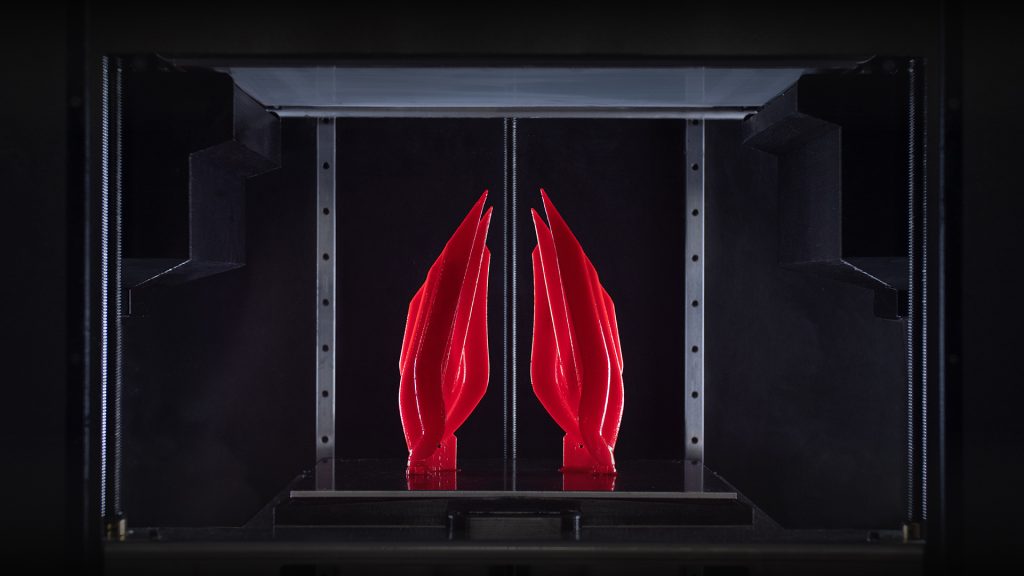
Boston Micro Fabrication (BMF), a specialist in micro precision 3D printing, has partnered with electronics provider Sunway Communication to 3D print new next-generation antenna devices. The firms have already established a new joint development lab located in San Diego, where BMF’s PμSL (Projection Micro-Stereolithography) will be used to enable new levels of antenna miniaturization.
Swiss SLS 3D printer OEM Sintratec has signed a new distribution agreement with engineering service provider Solidpro to increase its presence in Germany. The deal marks a large expansion of Sintratec’s existing German distribution network.
August Kurz, Manufacturing Sales Director at Solidpro, commented, “With Sintratec as our partner, we have gained a perfect addition to our product portfolio. We were especially convinced by the modular and scalable system design.”
Leading desktop 3D printer OEM Prusa Research has announced the acquisition of Printed Solid, a Delaware-based reseller of 3D printers and materials. In early 2022, Printed Solid became the first official distributor of Prusa products for enterprise, educational, and government customers. Moving forward, the acquisition will increase the availability of Prusa’s 3D printers in the US, and Printed Solid will begin providing local warranty and post-warranty services for customers.
Prusa Research CEO Josef Prusa said, “Printed Solid and its CEO David Randolph have been very popular and well-recognized ín the 3D printing community for a long time. From the first moments of working together, we were sure that we are on the right track to move experience for the owners of our printers based in the US to the next level.”
Finally, Wikifactory, a collaborative product development platform, has raised $2.5 million in pre-series A funding, bringing the firm’s total capital raised to almost $8 million. The latest funding round was financed by existing investors and new investors such as Seier Capital. Wikifactory intends to use the funds to expand on its manufacturing marketplace which launched earlier this year, enabling online quotes for advanced manufacturing processes like 3D printing.
Wikifactory also partnered with the Danish AM Hub to help manufacturing firms in Denmark adopt 3D printing into their daily operations.
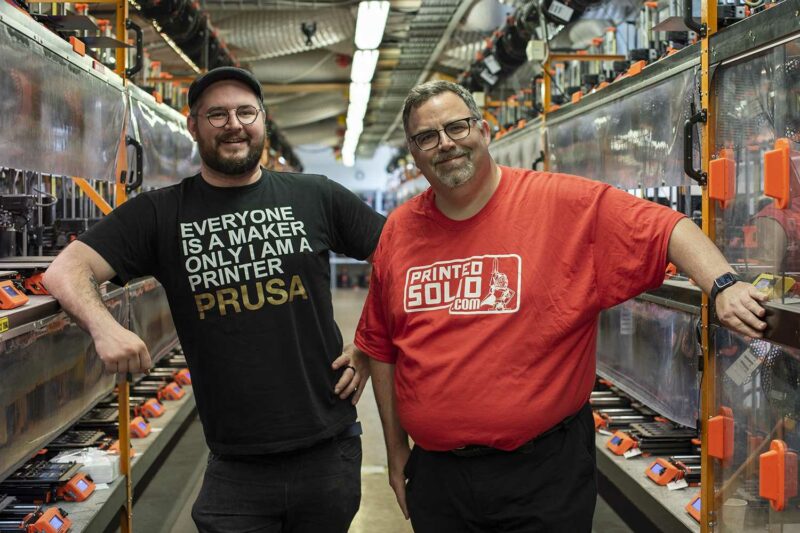
Rebrandings from Sigma Labs and Covestro
Sigma Labs, a specialist in quality assurance software for the 3D printing industry, has rebranded and begun operating under the new name Sigma Additive Solutions. The firm’s common stock has also started trading on the NASDAQ under a new ticker: SASI. The move is intended to reflect the company’s growth from its early days as a laboratory to its current position with its comprehensive set of patented quality metrics.
Jacob Brunsberg, President and CEO of Sigma, stated, “Our company’s decision to operate as Sigma Additive Solutions is an acknowledgment of the progress the Sigma team has made in creating the quality standard in additive manufacturing.”
Elsewhere, materials firm Covestro is also undergoing a rebranding for its thermoplastic materials portfolio. All polymers currently sold under the brand names of Arnilene, Arnite, Arnitel, EcoPaXX, and Novamid will now be commercialized under the Addigy brand name.
ASTM launches Consortium for Materials Data and Standardization
ASTM International’s Additive Manufacturing Center of Excellence (AM CoE) has launched its new Consortium for Materials Data and Standardization (CMDS) initiative. The CMDS aims to enable collaboration between key players in the 3D printing sector, ultimately advancing standardization for 3D printing materials data generation. It also serves to create and manage shared datasets to accelerate technology qualification, while promoting additive manufacturing adoption.
The consortium has 21 founding members including Boeing, Desktop Metal, EOS, GE Additive, and Raytheon.
Amber Andreaco, section manager – materials & powders at GE Additive, said, “GE Additive is pleased to continue its engagement with the AM CoE Industry Consortium. As a company that offers the entire additive ecosystem, from feedstock to finished parts, we recognize the importance of developing highly pedigreed materials property datasets. By coming together to define a common approach to materials characterization, we hope to drive further understanding and expansion of the additive industry as a whole.”
New 3D printing materials from Recreus, Henkel, and Mimaki
In the materials space, filament manufacturer Recreus has launched its new PLA-LW 3D printing material, a lightweight PLA suitable for low-density polymer parts. Developed using an ‘active foaming technology’, the material can reportedly reduce the weight of printed parts by up to 50% when compared to conventional PLA filament. The filament is now available in 750g and 3kg spools.
Henkel’s LOCTITE brand has launched a new photopolymer resin: Loctite IND380 ESD HT. The latest offering is defined by its electrostatic dissipative properties and high heat deflection temperature of over 200°C. The industrial-grade resin is suitable for a variety of applications such as PCB tooling, assembly fixtures, and electronics housings.
Full-color 3D printer OEM Mimaki has announced the launch of a new, clear 3D printing ink called MH-110PCL. Aimed squarely at artists, architects, and design professionals, the material is based on Mimaki’s previous MH-100CL ink but offers increased transparency while eliminating yellow tint.
Mark Sollman, Product Manager of Mimaki Europe, added, “Here at Mimaki we strive to do everything we can to accommodate the needs of our customers. We realized the importance of having truly clear material and acted upon it straight away.”
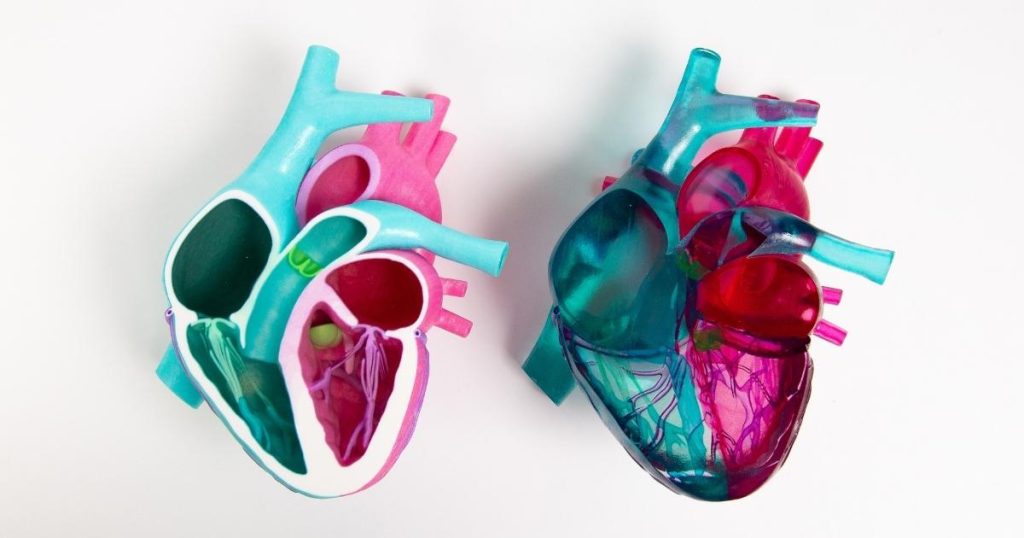
Latest 3D printer sales from Massivit, GE, and Optomec
Israel-based 3D printer manufacturer Massivit 3D has reported a successful launch of its Massivit 10000 3D printing system, announcing 12 new non-binding pre-sale reservations at the JEC World 2022 trade show in Paris. The reservations bring the total number of orders up to 29. Based on the firm’s next-generation Cast-In-Motion (CIM) technology, the system is the firm’s largest printer to date, sporting a huge build volume of 1200 x 1500 x 1650mm.
Elsewhere, 3D printing service provider BEAMIT has purchased a new Concept Laser M Line system from GE Additive. BEAMIT is a long-time GE Additive customer and already operates an entire fleet of Concept Laser and Arcam 3D printers. The latest M Line investment is intended to help meet the growing demand for large-format metal parts from customers in the aerospace and defense sectors.
Finally, industrial 3D printer manufacturer Optomec has announced the delivery of its 600th 3D printing system. The milestone figure includes 250 of the firm’s LENS DED 3D printers and 350 of its Aerosol Jet systems. Optomec’s customers span a wide variety of industries including aerospace, electronics, energy, and defense.
“Our team is delighted, and frankly proud, to reach this latest significant milestone that reinforces our leadership position in the markets we serve,” said Dave Ramahi, Optomec’s CEO. “As rewarding as the 600 machine figure is, what’s most encouraging is that it reflects customers’ confidence in our solutions’ ability to meet their production needs.”
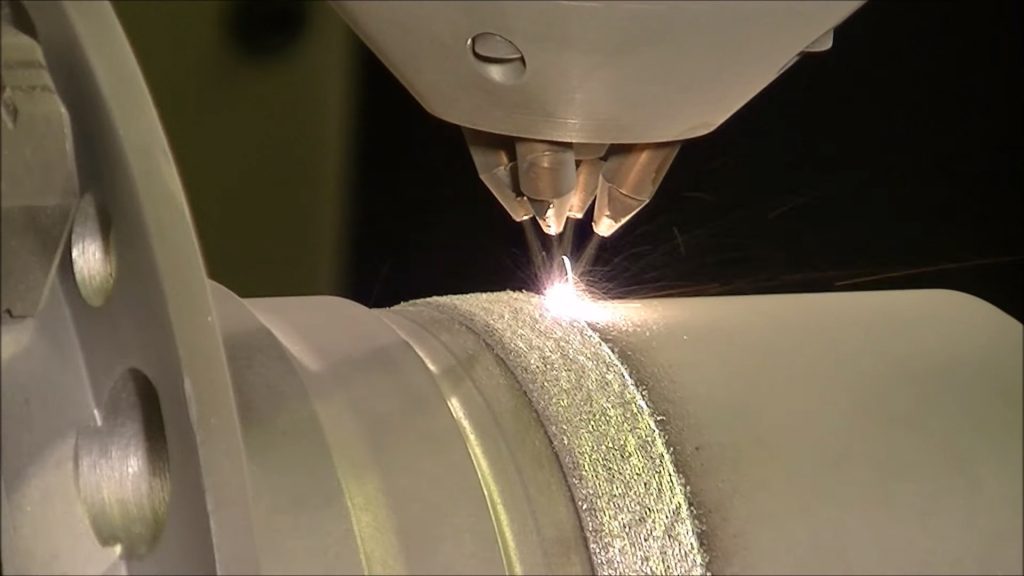
QC Labs achieves ABS Service Supplier certification
QC Laboratories, a non-destructive testing lab for the additive manufacturing sector, has now been certified as a Recognized Service Supplier by the American Bureau of Shipping (ABS). The firm was categorized under the Nondestructive Inspection category, demonstrating competency via a documentation review, facility audit, and a practical demonstration. QC also holds several other certifications from NADCAP, FAA, ASNT, EASA, and ISO.
Jose Crespo, General Manager of QC Labs, said, “Recognition as an Approved Service Supplier through ABS shows our customers our dedication to safety and validates our deep knowledge of NDT for marine structures. With the rise of additive manufacturing for marine applications, we’re positioned to help the commercial marine and offshore industries resolve supply chain issues by adopting industrial 3D printing.”
Desktop Metal’s new Supply Chain Resilience Package
Desktop Metal and Lumafield, a provider of X-ray computed tomography technology, have announced the launch of their new Supply Chain Resilience Package. The package combines Desktop Metal’s 3D printers with Lumafield’s CT scanners to enable customers to quickly and easily scan and print parts without the need for a CAD model.
The Supply Chain Resilience Package is currently available to customers that purchase a Desktop Metal 3D printer and reserve a Lumafield CT scanner before July 1, 2022.
“Manufacturers have wanted to replace legacy fabrication processes with 3D printing for a long time, but digitalization of parts has been a barrier,” said Ric Fulop, Founder and CEO of Desktop Metal. “With accessible CT scanning, we finally have the digitization solution we need to quickly convert old designs into complete CAD files for 3D printing.”
New post-processing systems from AM Solutions and DyeMansion
AM Solutions, a Germany-based developer of post-processing systems for the 3D printing industry, has launched its new C1 support removal station. Designed for use with 3D printed photopolymer resin parts, the compact plug-and-play machine can process components up to 340 x 440 x 170mm in size. The support removal approach combines chemical, thermal, and mechanical processes, relying on an immersion bath filled with a non-hazardous dissolution compound.
Elsewhere, surface finishing specialist DyeMansion has announced the launch of its Powerfuse S PP post-processing system, an upgraded version of the Powerfuse S designed specifically for polypropylene (PP) parts. The machine is based on the company’s VaporFuse Surfacing technology and is reportedly the first of its kind capable of smoothing 3D printed PP components.
Additionally, the firm has also revamped its original Powerfuse S system to be compatible with Lubrizol’s ESTANE 3D TPU material.
Felix Ewald, CEO and co-founder of DyeMansion, adds, “One of the biggest limitations in Additive Manufacturing is material availability. Enabling the industrial use of PP will be a big driver for further growth in our industry. We are very happy that we found a way to provide injection molding-like surfaces and enhanced properties through our Powerfuse S PP and we are very much looking forward to seeing the first high-volume use cases soon.”
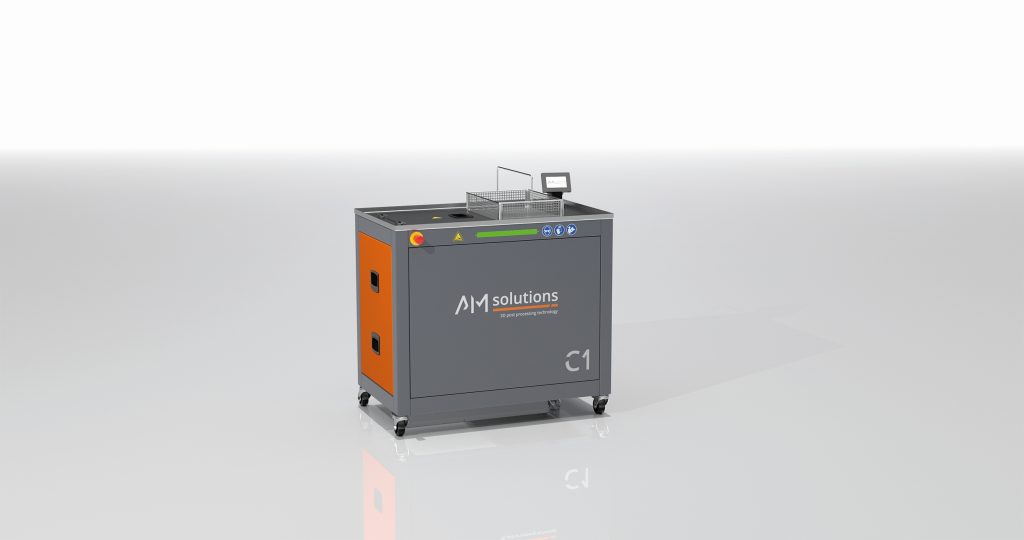
3D printed bagpipes and timepieces
In the music world, Glasgow-based musician and inventor Donald W. G. Lindsay is using 3D printing technology to create custom parts for his bagpipes. He started designing devices to extend the range of his smallpipes back in 2005, and now works with 3D printing to develop extended chanter parts. The design requirements he had for the chanter included looking like a chanter, encompassing the D-B range, and having no keys.
Donald’s old friend Alasdair Roberts commented, “I’ve known Donald since we were both teenagers – when he was mainly playing guitar, singing and writing songs. Even in those early pre-piping days, he was a fearlessly idiosyncratic musician.”
Watchmaker Panerai, together with boat builder Brabus, used 3D printing technology to develop a limited-edition timepiece. Priced at a hefty $49,200, the Submersible S Brabus Blue Shadow Edition is designed to look like the Brabus Shadow 900 Deep Blue luxury day-boat, which launched earlier this month. It features a 47mm casing 3D printed using titanium and is limited to only 200 units. The watch is also water-resistant to 300 meters and features a unidirectional rotating bezel.
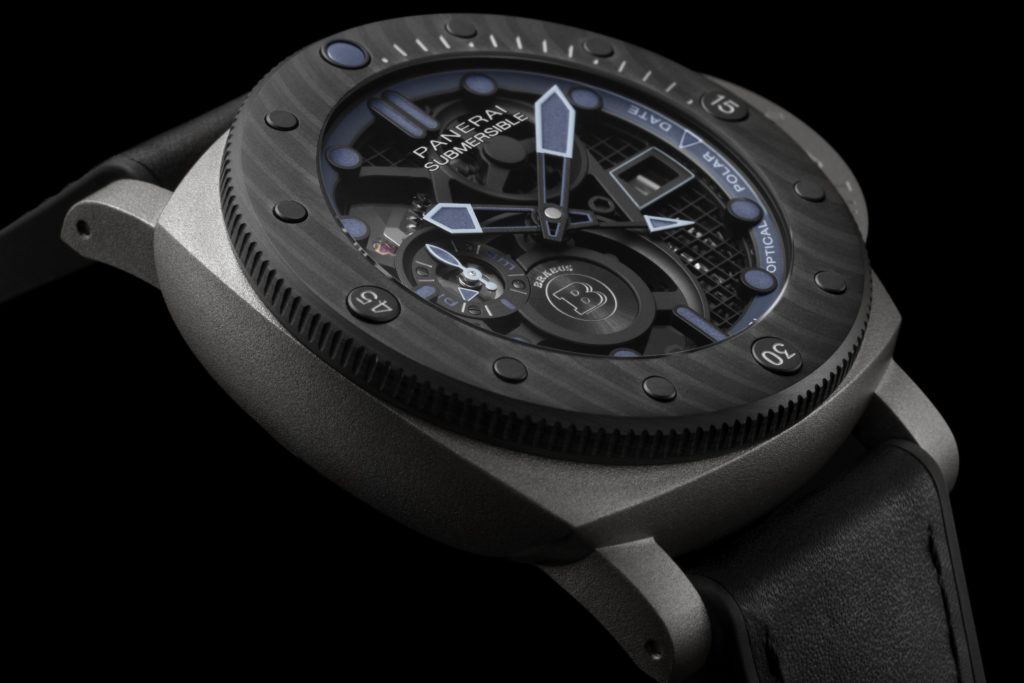
3DDW to take place from June 20 – 24
The first iteration of the 3D Delta Week (3DDW) is set to take place from June 20 – 24, 2022. The multi-event week comprises over a dozen individual events relating to 3D technologies like additive manufacturing. Taking place over five days, it will include masterclasses, a fair, symposia, R&D events, and more.
The ultimate goal of the 3DDW is to contribute to the advancement of 3D manufacturing technologies, while bringing together all those involved in the manufacturing sphere.
The organizers added, “3D Delta Week will be the annual meeting point for everyone involved in 3D Manufacturing, whether inside or outside the Benelux Delta. We are going to create value for users and providers.”
Subscribe to the 3D Printing Industry newsletter for the latest news in additive manufacturing. You can also stay connected by following us on Twitter, liking us on Facebook, and tuning into the 3D Printing Industry YouTube Channel.
Looking for a career in additive manufacturing? Visit 3D Printing Jobs for a selection of roles in the industry.
Featured image shows Sliced logo on the Submersible S Brabus Blue Shadow Edition. Photo via Panerai.



